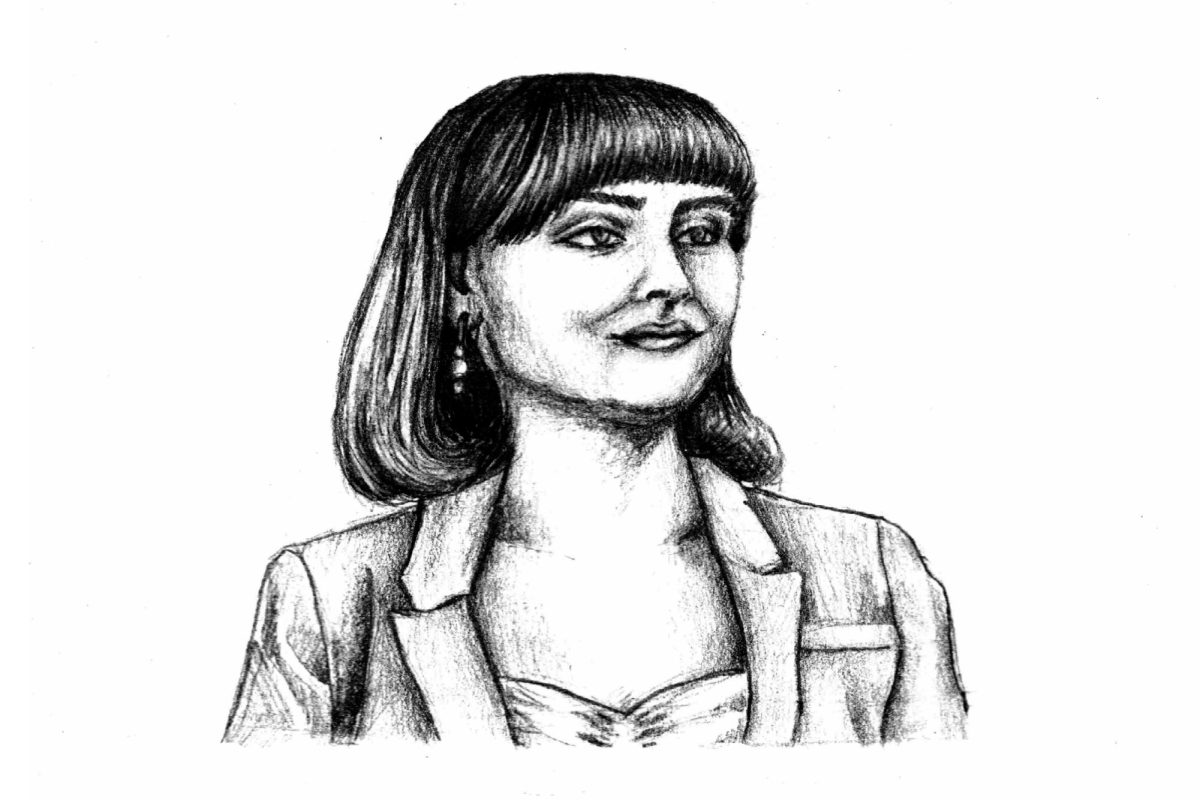Irene Ly, a sophomore majoring in psychology, is The Hatchet’s contributing opinions editor.

I’m the kind of person who prefers to maintain a quiet presence. I don’t speak out about controversial issues, especially on social media. But recently, there has been one issue I want to be loud about – Asian representation in the media.
While Asian representation in the media was already something I thought about a lot, the controversy surrounding Scarlett Johansson’s casting in the anime adaptation of “Ghost in the Shell” has reignited my frustration. And if it weren’t demeaning enough that directors chose a white woman to portray an Asian woman, producers tested digital effects to make actors, presumably including Johansson, to appear more Asian.
Whitewashing – or casting white actors in the roles of non-white people – for Asian roles isn’t new. Asians have long been underrepresented and misrepresented in the media. Asian representation in media can make it difficult for Asian-Americans to find their identity when they are not fairly represented.
I’ve wondered why this particular issue is so important to me. Many people in the Asian-American community may not care about media representation or may choose to focus on bigger societal problems. While their feelings make sense, my sentiments about why this issue is still a significant one are summed up perfectly by a YouTube comedy pair, the Fung Brothers, in a recent video.
“How we get portrayed in the media does kind of affect how people treat us in our real lives,” Andrew Fung, one of the brothers, said.
When what you watch on TV isn’t representative of who you are, it’s easy to lose your identity – something that I have always strongly felt.
I’ve grown up proud of, and interested in, my Asian culture. I enjoy the language, food and music. I also grew up in a community where others around me celebrated the same culture. We enjoyed one another’s customs and shared similarities.
When I was in middle school, I fell in love with Hong Kong dramas and music. While I didn’t realize it then, my fondness for Asian entertainment gave me a more positive and well-rounded view of Asians in general. Since the dramas I watched had all-Asian casts, I understood that Asians could play any type of character with any personality.
But when you change the channel to Hollywood movies, Asians are either left out completely, or horribly stereotyped. If we even manage to make it on screen, we’re almost always the nerds, the kung fu fighters, the immigrants or the ones making fools of themselves.
At a panel event before the premiere of the TV show “Fresh Off the Boat,” a journalist shared that they loved Asian culture and chopsticks, in particular. The journalist then asked if they would see chopsticks on the show, or if it would be “more Americanized.” This awkward question showed how misrepresentation of Asians in the media have created a misleading and one-sided image. This image has reduced the richness of Asian culture, which stings for someone who appreciates her culture so much.
When every portrayal of an Asian on TV is simplified to one sort of character, Asian-American children aren’t taught to be proud of who they are. If I had grown up only exposed to American media, I would have felt less proud of my Asian-American identity. I would have felt like no one understood my culture.
It’s easy to say “It’s just a movie.” But so much of art imitates life. If you’re a big TV fan like I am, and your identity is presented with the same stereotypes over and over, whether for Asians or any other race, it can become easy to believe those stereotypes must be true.
When I came to GW, I realized in less diverse communities, people probably do believe those stereotypes, and I experienced some culture shock when I came to school. There have been many times when I realized I was the only Asian in the room, and I’d be lying if that didn’t make me feel like an outsider. But after growing up with a healthy image of culture and diversity, I know I’m not. I had moved on to a new environment, but my upbringing allowed me to eventually become comfortable with it, while still maintaining my identity.
I grew up proud of my racial identity, and I’m lucky that has stuck with me during my time at GW. It also helps that I still get to spend time with my parents and regularly talk to my closest friends from my community. But many Asian-Americans aren’t as lucky as I am, and stereotyping in the media may keep them from being comfortable with who they are.
Every stereotyped Asian representation pulls us back and simplifies our culture, and as a result, paints a false picture to those who don’t know any better.
Thankfully, my identity as an Asian-American has never been something that gave me discomfort or confusion. I knew that Asians could have a wide range of personalities and interests and still have a great culture in common.
What I hope people will realize is that we need to be represented in the media in a way that acknowledges our own complexities and uniqueness, so that all Asian-Americans can grow up confident in their racial identity and non-Asians can know there is more to us than our chopsticks.
Want to publish a personal essay? Submit your idea.





